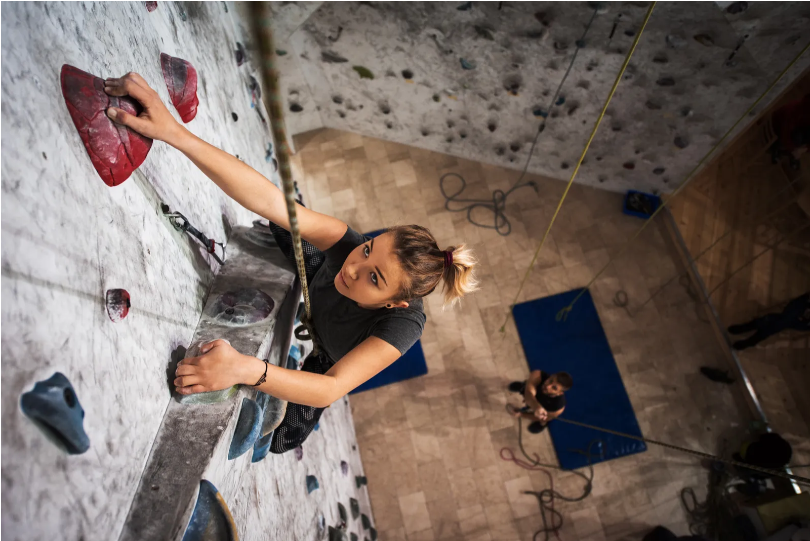Picking up Spanish just for fun, tackling crossword puzzles at 30, taking piano lessons, wandering through museums, trying embroidery, learning to climb, or joining a book club—any activity that challenges your brain outside of your daily work routine can act like a fountain of youth for your mind. And here’s the remarkable part: these habits don’t just keep you sharp; research suggests they can actually stimulate the birth of new neurons—even ones you may have lost earlier in life without noticing.
Neuroscientists have been underscoring this idea for years. In her book El cerebro atómico (The Atomic Brain), author Beatriz Larrea highlights studies showing that the brain has a regenerative capacity, and that a stimulating environment can foster neurogenesis—the creation of brand-new brain cells.

She also references reports from The Lancet noting that regularly challenging the brain functions almost like a “cognitive pension plan.” The more education, mental complexity, and lifelong stimulation you accumulate, the lower your risk of dementia later in life. On the flip side, retirement has been linked to as much as a 40% acceleration in cognitive decline—simply because the brain is left unstimulated.
Her advice? Nurture curiosity every day. Every time you try something new, you’re not just having fun—you’re giving your brain the push it needs to grow and rewire itself.
How Curiosity Shapes the Brain
When we learn something new, our neurons naturally form fresh connections. “Cognitive stimulation—through learning or engaging in mentally challenging activities—strengthens those neural links,” explains Dr. Amaya Manrique of The Beauty Concept’s precision medicine clinic in Madrid.
This process, known as neuroplasticity, is the brain’s lifelong ability to adapt, reorganize, and forge new pathways. “Imagine your brain as a network of highways,” Manrique says. “The more often you use a particular road, the smoother and faster it becomes. Leave it unused, and it might fade away—but the brain is clever enough to carve out a new route to the same destination.”
Which is why approaching life with childlike curiosity—starting from scratch with a new hobby, instrument, or skill—helps your brain lay down fresh routes and alternate solutions.
The Flow Effect: When Focus Becomes Effortless
Think back to when you first dove into a new passion, or took on an exciting challenge at work. Hours flew by, distractions vanished, and you barely noticed your phone buzzing. That state of total absorption is called flow.

“When we engage in an activity we truly enjoy—one that’s challenging enough to keep us invested, but not so hard that it overwhelms us—we enter flow,” explain Leïla Salamat-de Blignières and Laura G. Ortiz de Zárate, co-founders of ellas Coach. In that zone, creativity hums, productivity soars, and time slips away.
Flow doesn’t just feel good; it has real physiological benefits. Stress levels drop while the brain releases dopamine—the “feel-good” neurotransmitter linked to pleasure, motivation, and reward. In many ways, dopamine is the ultimate gift of learning something new.
Training Neuroplasticity Beyond Lifestyle
A stimulating lifestyle—paired with good sleep, stress management, and a balanced diet—lays the foundation for brain health. But for those seeking an extra boost, technology is stepping in.
One such innovation is Exomind’s transcranial magnetic stimulation (TMS) therapy, a treatment favored by celebrities like Serena Williams and Gwyneth Paltrow. In a 25-minute session, a handheld device delivers magnetic pulses to targeted brain regions associated with mood regulation, cognition, and self-control. Patients typically feel relaxed while hearing the soft clicking sounds of the device at work.
“This technology helps us strengthen selected ‘neural highways,’ improving brain performance, boosting cognition, lifting mood, and even easing anxiety or depression,” says Dr. Manrique. “It’s about enhancing the brain’s ability to make better choices in daily life.”
The Takeaway
Whether you’re mastering a new language, experimenting with embroidery, or signing up for piano lessons, the science is clear: curiosity is fuel for your brain. It sparks new neurons, deepens neural connections, and keeps your mind flexible well into later years.
Even with the latest therapies at hand, knowledge itself remains the most powerful—and space-saving—treasure we can collect. After all, the best investment you can make in your future brain health might be as simple as staying curious today.
